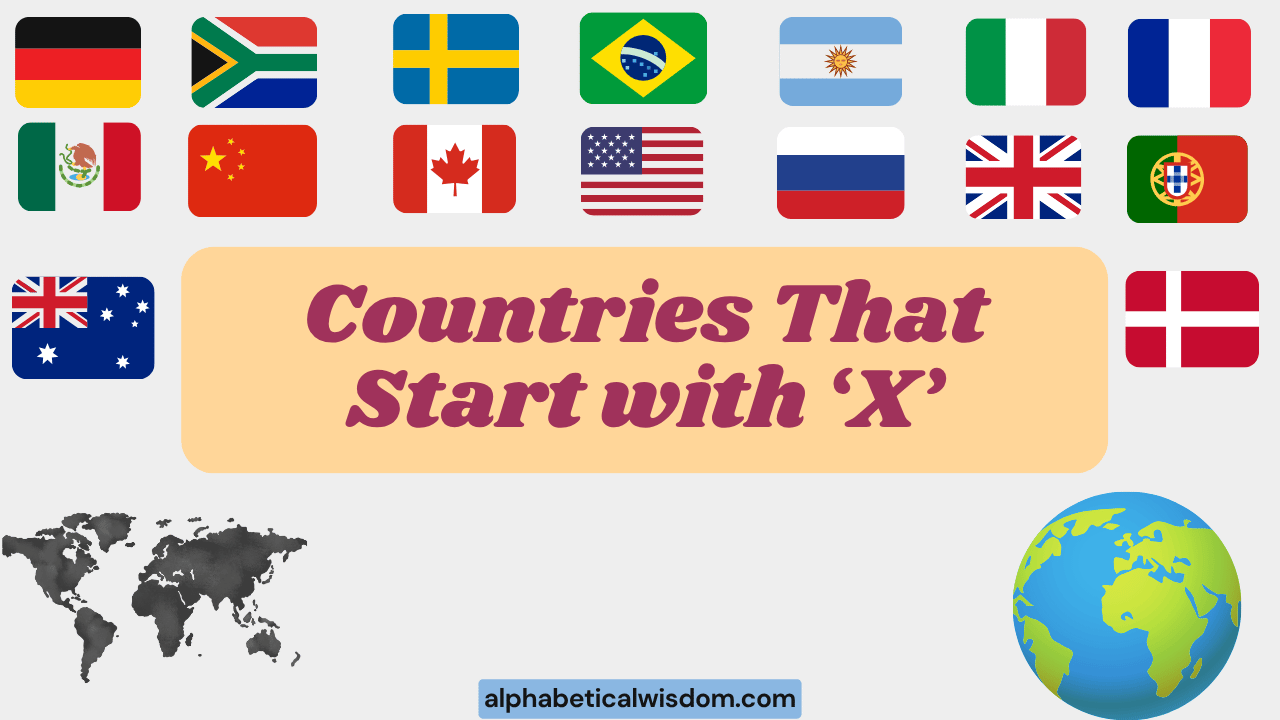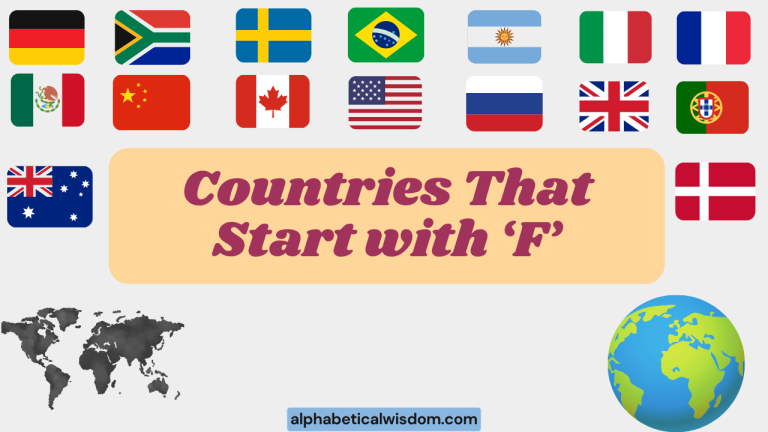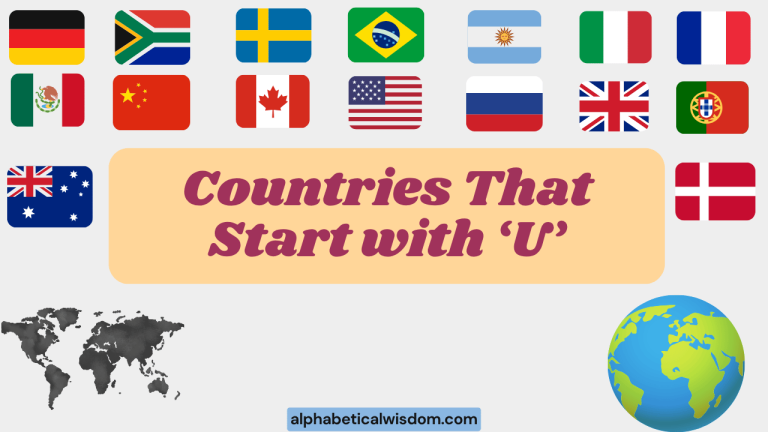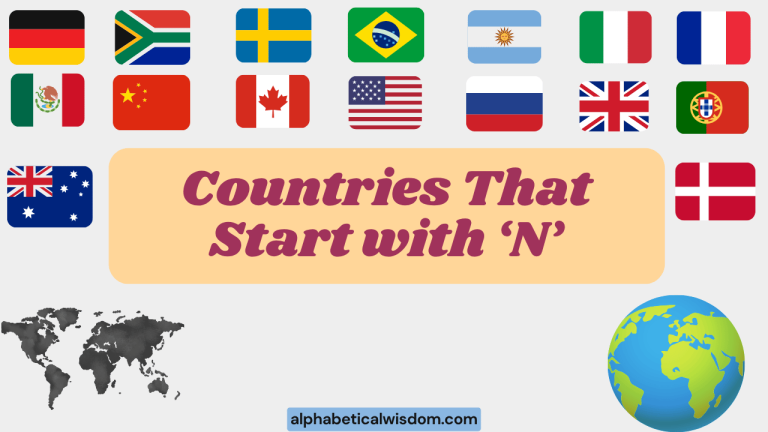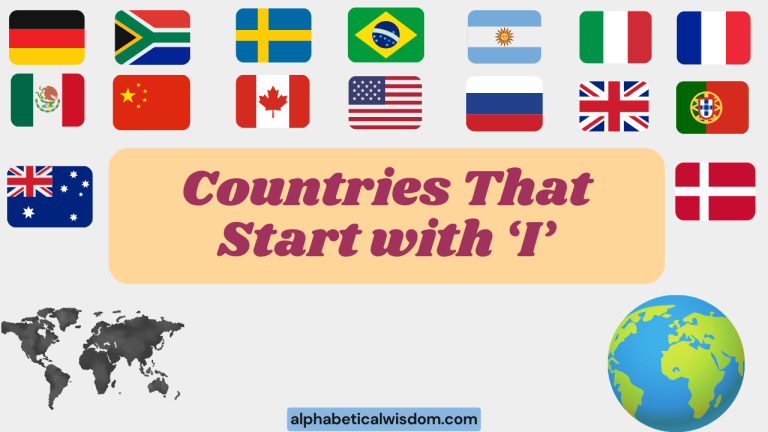Countries Starting With X: A Comprehensive Grammar Guide
Understanding how to correctly use country names, especially those less common like countries starting with “X,” is crucial for effective communication in English. This article provides a detailed exploration of proper nouns, specifically focusing on countries that begin with the letter “X.” It covers grammatical rules, common mistakes, and practical exercises to enhance your proficiency.
This guide is beneficial for English language learners, travelers, educators, and anyone who wants to improve their knowledge of geography and grammar.
Table of Contents
- Introduction
- Definition of Proper Nouns: Countries
- Structural Breakdown
- Examples of Countries Starting With X
- Usage Rules for Country Names
- Common Mistakes
- Practice Exercises
- Advanced Topics
- FAQ
- Conclusion
Definition of Proper Nouns: Countries
In English grammar, a proper noun is a specific name for a person, place, or thing. Unlike common nouns, which refer to general categories, proper nouns are always capitalized. When discussing countries, the names of countries are proper nouns. Therefore, they always begin with a capital letter. Understanding this foundational rule is crucial for writing and speaking correctly.
Countries, as proper nouns, identify specific political and geographical entities. They function as subjects, objects, or complements in sentences. For example, in the sentence “I visited X last year,” “X” is the object of the verb “visited” and a proper noun identifying a specific country. Proper nouns are essential for clarity and precision in communication, especially when discussing international relations, travel, or geography.
Structural Breakdown
The structure of country names is relatively straightforward. They consist of one or more words, always capitalized.
There are no specific grammatical complexities related to countries starting with “X” compared to other country names. The main consideration is spelling and proper capitalization.
The word order within a sentence remains consistent with standard English syntax, regardless of the country name used.
The grammatical role of a country name within a sentence is determined by its context. It can act as the subject (e.g., “X is a beautiful country”), the object (e.g., “I want to visit X“), or part of a prepositional phrase (e.g., “The culture of X is fascinating”). Understanding these roles helps ensure correct sentence construction and meaning.
Examples of Countries Starting With X
Currently, there are no internationally recognized sovereign countries that officially start with the letter “X” in the English language. However, it’s important to consider historical contexts, transliterations, and alternative names.
The most commonly cited example related to “X” is related to transliterations or historical references, such as variations of names for regions within China or other areas where the pronunciation might lead to an “X” sound in certain Romanization systems. This does not make them independent countries, but it’s important to understand the context.
While no official country starts with “X”, it is useful to consider place names, regions, or historical entities that might have variations or transliterations involving the letter “X”. These examples help illustrate how “X” might appear in geographical contexts, even if not as a primary country name.
The following tables provide examples of regions, transliterations, and hypothetical scenarios for illustrative purposes.
Regions and Transliterations
This table presents examples of regions or transliterations where “X” might appear, offering a glimpse into geographical contexts where the letter could be relevant.
| Region/Transliteration | Description | Example Sentence |
|---|---|---|
| Xinjiang (China) | An autonomous region in Northwest China. While not starting with “X” in its official Pinyin romanization, variations in pronunciation or older transliterations might create an “X” sound. | The culture of Xinjiang is diverse and rich. |
| Xizang (Tibet, China) | The official Pinyin romanization of Tibet. Similar to Xinjiang, pronunciation and older transliterations could create an “X” sound. | Xizang is known for its stunning mountain landscapes. |
| Xalapa (Mexico) | Capital city of the state of Veracruz, Mexico. While a city, it demonstrates “X” in a geographical location. | We visited Xalapa during our trip to Mexico. |
| Xanten (Germany) | A town in North Rhine-Westphalia, Germany. Demonstrates “X” in a geographical location. | Xanten has a rich Roman history. |
| Xenia (USA) | A city in the state of Ohio. Demonstrates “X” in a geographical location. | Xenia is a quiet city in Ohio. |
| Xi’an (China) | A major city in China, known for the Terracotta Army. | We traveled to Xi’an to see the Terracotta Army. |
| Xingu (Brazil) | A major tributary of the Amazon River. | The Xingu River is vital to the Amazon ecosystem. |
| Xochimilco (Mexico) | A borough of Mexico City, known for its canals. | We enjoyed a boat ride in Xochimilco. |
| The letter X in Coordinates | Denotes East-West direction. | The coordinates were set at X 123.45, Y 67.89. |
| Xeres (Spain) | An alternative spelling of Jerez, a city in Spain known for sherry. | We tasted sherry in Xeres. |
| Xylokastro (Greece) | A coastal town in Greece. | We enjoyed the beach in Xylokastro. |
| Exeter (UK) | A city in Devon, England. While starting with an ‘E’, the pronunciation can sound like ‘X’ to some. | We explored the cathedral in Exeter. |
| Xanten (Germany) | A town in North Rhine-Westphalia, Germany. | The Roman ruins in Xanten are impressive. |
| Xaló (Spain) | A town in the province of Alicante, Spain. | We visited the vineyards in Xaló. |
| Xiva (Uzbekistan) | Also known as Khiva, city in Uzbekistan. | The old city of Xiva is a UNESCO World Heritage site. |
| Xique-Xique (Brazil) | A municipality in the state of Bahia, Brazil. | We travelled through Xique-Xique in Brazil. |
| Xinyang (China) | A prefecture-level city in Henan province, China. | Xinyang is known for its tea production. |
| Xiamen (China) | A major port city in Fujian province, China. | Xiamen is a beautiful coastal city. |
| Xichang (China) | A city in Sichuan province, China, known for its space center. | The satellite launch took place in Xichang. |
| Xalapa-Enríquez (Mexico) | The full name of Xalapa, the capital of Veracruz. | We explored the historical center of Xalapa-Enríquez. |
Hypothetical Scenarios
This table presents hypothetical scenarios involving fictional countries starting with “X,” allowing us to explore grammatical usage in a creative context.
| Hypothetical Country | Example Sentence | Grammatical Role |
|---|---|---|
| Xylos | Xylos is known for its dense forests. | Subject |
| Xantus | I plan to travel to Xantus next year. | Object |
| Xylopia | The culture of Xylopia is fascinating. | Prepositional Phrase (of Xylopia) |
| Xenova | The capital of Xenova is a bustling city. | Prepositional Phrase (of Xenova) |
| Xylomar | He emigrated from Xylomar to find better opportunities. | Prepositional Phrase (from Xylomar) |
| Xylos | The government of Xylos has implemented new environmental policies. | Prepositional Phrase (of Xylos) |
| Xantus | The economy of Xantus relies heavily on tourism. | Prepositional Phrase (of Xantus) |
| Xylopia | The official language of Xylopia is Xylopian. | Prepositional Phrase (of Xylopia) |
| Xenova | Xenova gained independence in 1995. | Subject |
| Xylomar | The flag of Xylomar is blue and gold. | Prepositional Phrase (of Xylomar) |
| Xylos | The president of Xylos addressed the nation. | Prepositional Phrase (of Xylos) |
| Xantus | She works at the embassy of Xantus. | Prepositional Phrase (of Xantus) |
| Xylopia | The cuisine of Xylopia is known for its spices. | Prepositional Phrase (of Xylopia) |
| Xenova | We learned about the history of Xenova in school. | Prepositional Phrase (of Xenova) |
| Xylomar | The mountains of Xylomar are breathtaking. | Prepositional Phrase (of Xylomar) |
| Xyloberg | Xyloberg is a landlocked country. | Subject |
| Xantopia | The people of Xantopia are very friendly. | Prepositional Phrase (of Xantopia) |
| Xyloford | Xyloford has a population of about 5 million. | Subject |
| Xanthos | The king of Xanthos gave a speech. | Prepositional Phrase (of Xanthos) |
| Xylonia | I would love to visit Xylonia one day. | Object |
Using “X” in Place Names
This table illustrates how “X” can be used in place names other than country names, providing examples of cities, regions, or landmarks.
| Place Name | Description | Example Sentence |
|---|---|---|
| Xalapa | City in Mexico | We explored the historical center of Xalapa. |
| Xanten | Town in Germany | The Roman ruins in Xanten are well-preserved. |
| Xi’an | City in China | The Terracotta Army is located near Xi’an. |
| Xingu River | River in Brazil | The Xingu River is a major tributary of the Amazon. |
| Xochimilco | Borough in Mexico City | We took a boat ride through the canals of Xochimilco. |
| Xylokastro | Town in Greece | We spent the summer in Xylokastro. |
| Exeter | City in England (Pronounced with a slight “x” sound by some) | The cathedral in Exeter is a beautiful example of Gothic architecture. |
| Xique-Xique | Municipality in Brazil | We drove through the municipality of Xique-Xique. |
| Xinyang | City in China | Xinyang is known for its tea production. |
| Xiamen | City in China | Xiamen is a popular tourist destination. |
| Xichang | City in China | The space center is located in Xichang. |
| Xaló | Town in Spain | We tasted local wines in Xaló. |
| Xiva | City in Uzbekistan | The ancient city of Xiva is a UNESCO World Heritage site. |
| Xanthi | City in Greece | The carnival of Xanthi is famous. |
| Xochitepec | Town in Mexico | We visited the gardens in Xochitepec. |
| Xonrupt-Longemer | Town in France | We went hiking near Xonrupt-Longemer. |
| Xiva Oasis | Oasis in Uzbekistan | The Xiva Oasis has been inhabited for centuries. |
| Xingu National Park | National Park in Brazil | We explored the biodiversity of the Xingu National Park. |
| Xishuangbanna | Region in China | The tropical climate of Xishuangbanna is ideal for tea cultivation. |
| Xochicalco | Archaeological site in Mexico | The pyramids of Xochicalco are impressive. |
Usage Rules for Country Names
Several key rules govern the usage of country names in English:
- Capitalization: Always capitalize the first letter of a country name.
- Articles: Generally, do not use the definite article “the” before singular country names unless the name includes words like “Republic,” “Kingdom,” or “States.” For example, “the United States of America” or “the United Kingdom.”
- Adjectives: To form adjectives from country names, use the appropriate form (e.g., “American” from “America,” “Chinese” from “China”).
- Plural Forms: Some country names are plural (e.g., “the Netherlands”). Use plural verbs with these names.
- Context: Ensure the country name is appropriate for the context. Use official names in formal settings and common names in informal settings.
Understanding these rules ensures that you use country names correctly in various contexts, enhancing the clarity and professionalism of your communication.
Common Mistakes
Several common mistakes occur when using country names. Being aware of these errors can help you avoid them and improve your accuracy.
| Incorrect | Correct | Explanation |
|---|---|---|
| xizang is beautiful. | Xizang is beautiful. | Country names must be capitalized. |
| I want to visit xalapa. | I want to visit Xalapa. | City names must be capitalized. |
Avoiding these common mistakes requires attention to detail and a solid understanding of capitalization rules. Regularly review your writing to identify and correct any errors.
Practice Exercises
Complete the following exercises to reinforce your understanding of using country names correctly. These exercises cover capitalization, article usage, and adjective formation.
Exercise 1: Capitalization
Correct the capitalization in the following sentences.
| Question | Answer |
|---|---|
| i want to visit xalapa next year. | I want to visit Xalapa next year. |
| xizang is a beautiful region. | Xizang is a beautiful region. |
| we explored the city of xi’an. | We explored the city of Xi’an. |
| the xingu river is in brazil. | The Xingu River is in Brazil. |
| xochimilco is known for its canals. | Xochimilco is known for its canals. |
| we visited xanten in germany. | We visited Xanten in Germany. |
| she lives in xylokastro, greece. | She lives in Xylokastro, Greece. |
| he traveled to xique-xique in brazil. | He traveled to Xique-Xique in Brazil. |
| they are from xinyang, china. | They are from Xinyang, China. |
| i have always wanted to see xiamen. | I have always wanted to see Xiamen. |
Exercise 2: Fill in the Blanks
Fill in the blanks with the correct country or city name.
| Question | Answer |
|---|---|
| ________ is a city in Mexico known for its beauty. | Xalapa is a city in Mexico known for its beauty. |
| The Terracotta Army is located near ________ in China. | The Terracotta Army is located near Xi’an in China. |
| We visited ________, Germany, to see the Roman ruins. | We visited Xanten, Germany, to see the Roman ruins. |
| __________ is a beautiful town in Greece. | Xylokastro is a beautiful town in Greece. |
| The ________ River is a major tributary of the Amazon. | The Xingu River is a major tributary of the Amazon. |
| _________ is the capital of Veracruz, Mexico. | Xalapa is the capital of Veracruz, Mexico. |
| ________ is a town in Alicante, Spain. | Xaló is a town in Alicante, Spain. |
| ________ is a space center in China. | Xichang is a space center in China. |
| ________ is a port city in China. | Xiamen is a port city in China. |
| ________ is known for its tea production. | Xinyang is known for its tea production. |
Advanced Topics
For advanced learners, understanding the nuances of historical country names, transliterations, and geopolitical contexts is essential. Explore how historical events have shaped the names and boundaries of countries.
Research the impact of transliteration systems on how country names are represented in different languages. Analyze how geopolitical factors influence the use and recognition of certain country names.
This deeper understanding will enhance your ability to discuss international affairs and historical topics with greater accuracy and sensitivity.
FAQ
- Are there any countries that officially start with the letter “X” in English?
No, there are currently no internationally recognized sovereign countries that officially start with the letter “X” in the English language. However, it’s important to consider historical contexts, transliterations, and alternative names.
- Why is it important to capitalize country names?
Country names are proper nouns, and proper nouns are always capitalized in English. Capitalization distinguishes them from common nouns and indicates a specific entity.
- Should I use “the” before a country name?
Generally, do not use “the” before singular country names unless the name includes words like “Republic,” “Kingdom,” or “States,” such as “the United States of America” or “the United Kingdom.”
- How do I form an adjective from a country name?
To form adjectives from country names, use the appropriate form (e.g., “American” from “America,” “Chinese” from “China”).
- What should I do if I am unsure of the correct spelling of a country name?
Consult a reliable source such as a dictionary, encyclopedia, or official government website to verify the correct spelling.
- Why are some country names plural?
Some country names are plural due to historical or geographical reasons. For example, “the Netherlands” refers to a region composed of multiple historical territories.
- How do transliteration systems affect country names?
Transliteration systems convert names from one writing system to another. This can result in variations in spelling and pronunciation, especially for names from languages like Chinese or Russian.
- Are there any exceptions to the capitalization rule for country names?
No, the capitalization rule for country names is generally consistent. Always capitalize the first letter of a country name, regardless of its position in a sentence.
- How can I improve my knowledge of country names and geography?
Read books, articles, and news reports about different countries. Study maps and atlases. Watch documentaries and travel programs. Engage in conversations with people from different countries.
- What resources can I use to learn more about country names and their origins?
Consult dictionaries of etymology, historical atlases, and linguistic resources. Explore websites of international organizations such as the United Nations for official information.
- How do I handle historical country names that are no longer in use?
When referring to historical contexts, use the historical country name that was in use at the time. Provide context if necessary to avoid confusion.
- Why is it important to use the correct name for a country?
Using the correct name for a country demonstrates respect and cultural sensitivity. It also ensures clear and accurate communication.
Conclusion
Mastering the use of country names, including the correct capitalization and grammatical context, is essential for clear and effective communication in English. While there are no currently recognized countries starting with “X”, understanding the grammatical rules for proper nouns and place names is crucial.
By following the guidelines outlined in this article, you can avoid common mistakes and enhance your overall language proficiency. Remember to practice consistently and consult reliable resources when in doubt.
With dedication and attention to detail, you can confidently navigate the complexities of English grammar and communicate effectively in any context.
